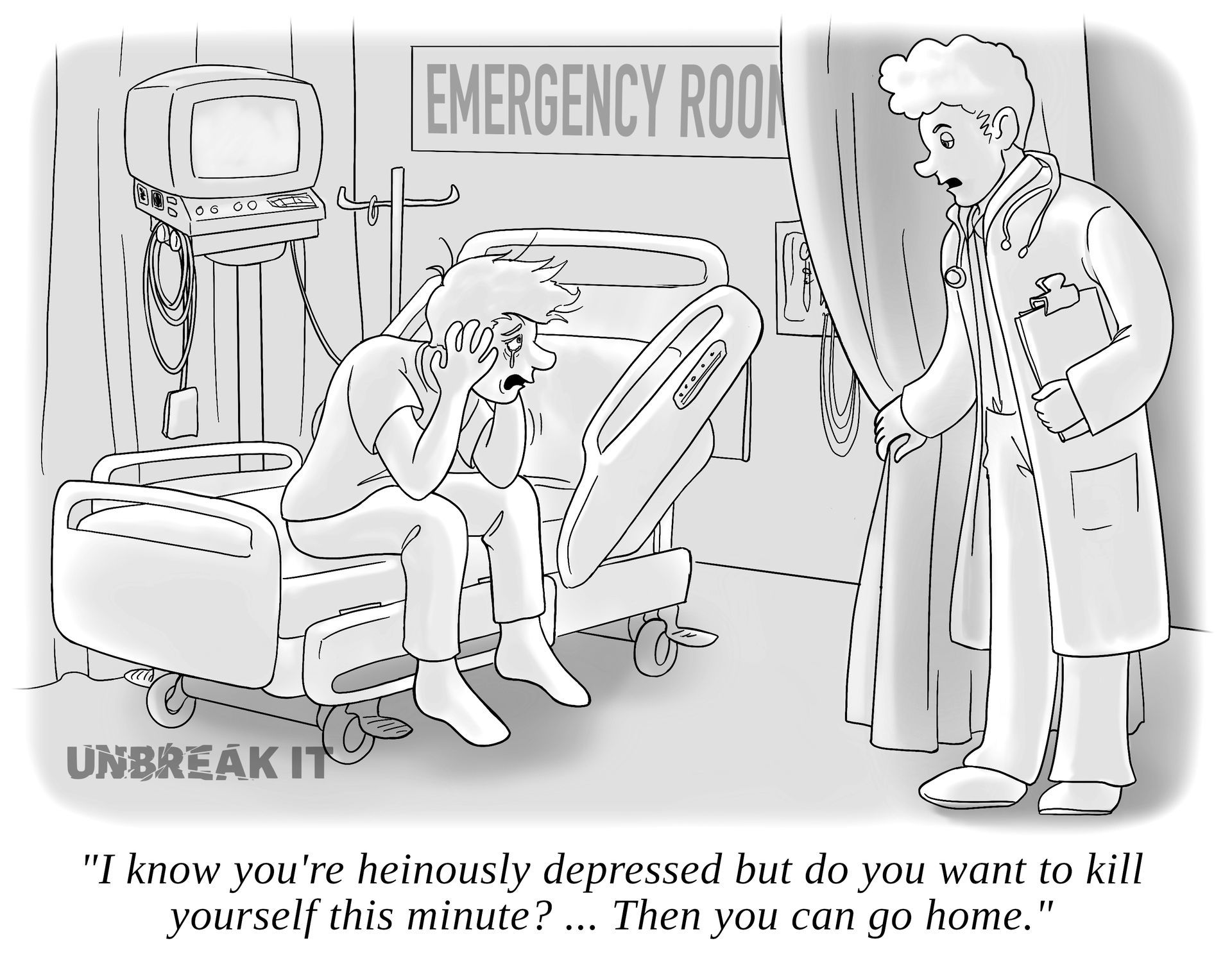Imagine going to the emergency room and saying you’re so depressed you wish you would die.
And being sent home.
Don’t believe it happens? It does.
The emergency room is the place you go when you’re the most desperate; when there’s nowhere else to go when you don’t even know what to do anymore.
Here’s the problem: It’s not equipped to help you. When you’re having a mental health crisis, you need someone with expertise and time. An emergency room might not have the first, and it definitely doesn’t have the second. It has to refer you somewhere else.
The only thing is, there’s no place to refer you to. The treatment programs you need are either full, inadequate, or don’t exist. There is no long-term inpatient program you’re going to find even if you need one. Unless you can travel and have $50K. Minimum.
Hospitals won’t keep you unless they deem you an immediate danger to yourself or someone else, and I mean an immediate danger. If they think you are one, they’ll hold you in a hallway or a bed within the eyesight of the staff or in a locked unit while they look. But essentially, you’ll just lay there. You won’t get treatment while they’re searching.
If you do need inpatient care and they find it, you won’t stay long.
Try 5-10 days. Think about that. Can you actually solve anything in 5 days? Most antidepressants don’t even begin to work for two weeks. But the minute you say you’re feeling a bit better, you’ll be discharged.
Now let’s consider another scenario. You tell the doctor you’re so depressed you wish you were dead. You don’t want to die; not really. You just feel so horrible you wish life would do it for you.
You’re not necessarily bad off enough to be deemed an immediate danger. Depending on the doctor who sees you, you could be sent directly home.
Is there an outpatient program that you are set up with immediately? The next day? Or week?
No. They’re full.
Is there a follow-up appointment set up for you, with a counselor or psychiatrist who can see you the next day? Or week?
No. You’re expected to find that person yourself. Perhaps you’re given a list of providers to call.
Notice, we’re not talking about the quality of these inpatient or outpatient treatment programs. We’re not even there yet. We’re talking about anything at all.
Do we send someone home with chest pain, give them a list of cardiologists to call even though they’re booked, and tell them to call 911 or come back after they’ve had a heart attack?
We do not.
We wouldn’t think of doing it, and it wouldn’t matter if they couldn’t pay.
When people with mental health issues ask for help, calling and calling and going to the emergency room, and they learn there’s nothing for them, we contribute to their hopelessness.

